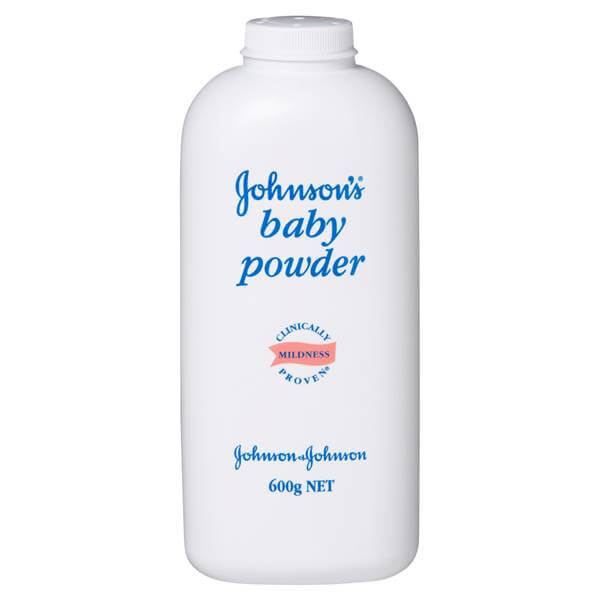A recent ruling from a federal judge in New Jersey has cleared the way for thousands of talcum powder cancer lawsuits against Johnson & Johnson to proceed. The ruling, handed down by U.S. District Judge Freda L. Wolfson, allows testimony from plaintiffs’ medical and scientific experts, including specialists in occupational and environmental health, cancer prevention research and gynecologic oncology. Johnson & Johnson had hoped to exclude the expert testimony from the talcum powder trials by raising a Daubert motion and challenging the validity of the testimony. Had Wolfson sided with Johnson & Johnson and ruled out the plaintiffs’ expert testimony, the decision would have eliminated more than 16,000 lawsuits currently pending in the talcum powder multidistrict litigation (MDL). By permitting the expert witnesses to testify, Judge Wolfson has cleared the way for the talcum powder cases to proceed to trial.
Talcum Powder Lawsuits Against Johnson & Johnson
Johnson & Johnson currently faces thousands of lawsuits filed on behalf of women who claim that the company’s iconic Baby Powder caused them to develop ovarian cancer. Many of these women used Baby Powder for years, unaware that the talc in Baby Powder could be contaminated with asbestos, a mineral fiber that has been linked to several different types of cancer, including ovarian cancer and mesothelioma. Because talc and asbestos are often found near one another in the earth, talc can easily become contaminated with asbestos while being mined. And while talc itself is not believed to cause adverse health effects, asbestos is a known carcinogen and extensive research shows that exposure to asbestos in talc products may increase consumers’ risk of cancer. The majority of the 16,000-plus talcum powder lawsuits pending against Johnson & Johnson include ovarian cancer claims and the fate of the lawsuits in the federal MDL hinged on Judge Wolfson’s decision in the Daubert hearings.
What is a Daubert Hearing?
In U.S. federal law, a Daubert motion is a special motion raised before or during trial by a party hoping to exclude the presentation of “unqualified” evidence to the jury. During a Daubert hearing, a judge evaluates whether or not the testimony and evidence provided by the expert witness or witnesses in question is admissible. By raising a Daubert motion in the talcum powder litigation, Johnson & Johnson hoped to bar plaintiffs’ experts from testifying that its talcum powder products contain asbestos and can cause ovarian cancer. However, Judge Wolfson, the judge overseeing the talcum powder MDL against Johnson & Johnson, found that specific portions of the science underlying the plaintiffs’ allegations were valid.
Nine months after the U.S. District Court for the District of New Jersey held the hearings regarding the admissibility of expert testimony in the thousands of personal injury lawsuits in which plaintiffs allege that they developed ovarian cancer as a result of using Johnson’s talcum powder products, the court’s much-anticipated opinion was finally released on April 27. Per Judge Wolfson’s ruling, plaintiffs in the talcum powder MDL can present expert testimony indicating that talc could be contaminated with asbestos, but not that talc itself causes cancer. They can also testify that talc can travel to the ovaries when used vaginally, but not that it can reach the ovaries if inhaled.
Talcum Powder Contaminated with Asbestos
Judge Wolfson’s Daubert ruling is a preliminary win for plaintiffs, who now have the support of medical and scientific experts behind their claims that Johnson & Johnson sold talcum powder that was contaminated with asbestos and caused thousands of women to develop ovarian cancer. For decades, Johnson & Johnson has denied that its Baby Powder and Shower-to-Shower Body Powder products were harmful, claiming that “Thousands of tests over the past 40 years repeatedly confirm that our consumer talc products do not contain asbestos.” However, in 2018, a bombshell report by Reuters revealed that Johnson & Johnson knew that its talc sometimes contained small amounts of the carcinogen asbestos, but did nothing to warn consumers about the potential risk of cancer from talcum powder. Instead, the company concealed this information from the public and the medical community. In October 2019, Johnson & Johnson was forced to issue a Baby Powder recall after a sample from a bottle purchased from an online retailer tested positive for asbestos fibers.
Seeking Compensation for Cancer Allegedly Caused by Talcum Powder
In addition to the thousands of lawsuits pending in the federal MDL, Johnson & Johnson faces several individual lawsuits filed in state courts across the country on behalf of consumers who allege that the company’s talcum powder products contain asbestos and can cause cancer. In July 2018, a St. Louis jury awarded $4.69 billion in a talcum powder lawsuit filed by 22 plaintiffs who alleged that Johnson & Johnson Baby Powder caused their ovarian cancers. While the majority of the talcum powder lawsuits against Johnson & Johnson involve ovarian cancer claims, a growing number of lawsuits are being filed by consumers who developed mesothelioma allegedly caused by exposure to asbestos in talc. In March 2019, Johnson & Johnson was hit with a $29.5 million verdict in a lawsuit filed in California by a woman who alleged that the company’s talc-based Baby Powder contained cancer-causing asbestos and caused her mesothelioma diagnosis.




